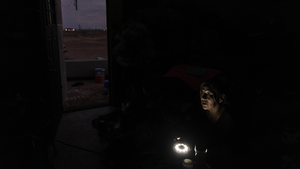Microsoft to Build $250 Million Data Center in Finland
Accelerating its global data center expansion, Microsoft will build a $250 million data center in Finland, the company said today. The investment was announced alongside a larger deal in which Microsoft will pay $7 billion to acquire Nokia's devices business.
September 3, 2013


quincy-airhandler-1
A Microsoft data center module packed with servers is installed in the company's facility in Quincy, Washington. Microsoft is building a $250 million data center in Finland. (Photo: Microsoft)
Accelerating its global data center expansion, Microsoft will build a $250 million data center in Finland, the company said today. The investment was announced alongside a larger deal in which Microsoft will pay $7 billion to acquire Nokia's devices business.
The data center in Finland continue a massive expansion of Microsoft's Internet infrastructure to support growth in its Azure cloud services and Xbox Live gaming service. It also reflects Microsoft's growing focus on its international infrastructure. The company recently said it would construct data centers in Singapore and Australia to boost its footprint in the Asia-Pacific region. Microsoft has been gradually expanding its primary European data center hub in Dublin, Ireland.
The announcement is another big win for the booming Nordic data center scene. Google has already built a huge data center in a former paper mill in Hamina, Finland, while Facebook just opened a huge server farm in Lulea, Sweden.
Microsoft's data center news was included in a larger announcement of the Nokia acquisition, which has sparked widespread speculation that Nokia executive Steven Elop is now positioned to succeed Microsoft CEO Steve Ballmer, who just announced plans to retire. Elop worked for Microsoft for many years before taking the helm at Nokia.
The investment in Finland could surpass, $250 million, as the announcement said Microsoft would "invest more than a quarter-billion dollars in capital and operation of the new data center over the next few years, with the potential for further expansion over time."
Read more about:
EuropeAbout the Author
You May Also Like

.jpg?width=300&auto=webp&quality=80&disable=upscale)





